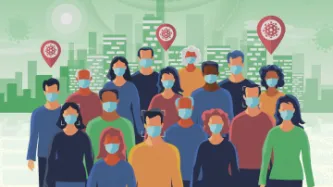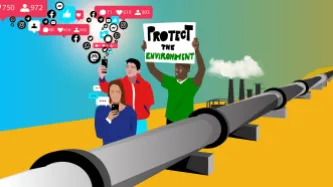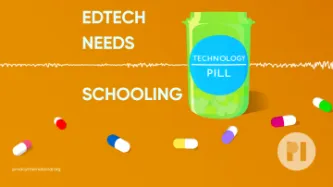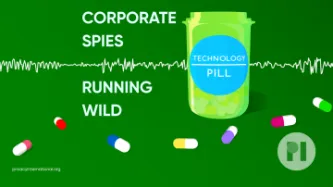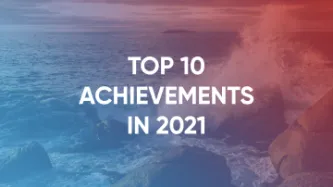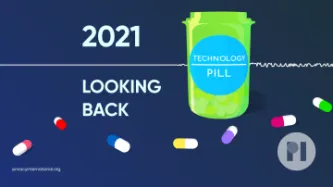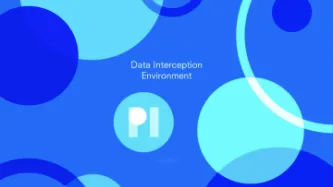Search
Content type: Examples
The French minister of national education and youth has advised schools not to use the free versions of Microsoft Office 365 and Google Workspace because French public procurement contracts require payment. Paid versions may be allowed if they do not violate data protection rules, including a 2020 French ruling that cloud services that store data in the US are not compliant with GDPR.
https://www.theregister.com/2022/11/22/france_no_windows_google/
Writer: Thomas Claburn
Publication: The…
Content type: Examples
A security flaw in the mandatory "Diksha" app operated by the Education Ministry, which became an important tool for giving students access to coursework while at home during the pandemic, exposed the data of millions of Indian students and teachers for more than a year when a cloud server hosted on Microsoft Azure was left unprotected. In 2022, Human Rights Watch found that Diksha was able to track students location, and shared data with Google, which indexed more than 100 files from the…
Content type: Long Read
In August 2021, PI published the report An unhealthy diet of targeted ads where we uncovered how personal data was shared by diet companies through their online ads and online testing. Our findings were quite grim, with highly sensitive personal data shared with third parties without consent.
Following this initial report, we performed follow-up research with the same methodology and by September 2021 we reported a number of positive changes from two of these websites: BetterMe and VShred.…
Content type: Long Read
On 18th January, it was announced that end-to-end encrypted iCloud services, Advanced Data Protection, would be offered to Apple users globally.The offer of such level of security globally, while overdue, is a key step to ensuring trust and confidence in today’s world. There are too many threats to our data and our rights. Twelve years ago, we called on Apple to encrypt iCloud storage for users all around the world.Why this is importantWhile privacy and security is often portrayed as opposite…
Content type: Long Read
The UK’s security services have the power to collect, analyse, and store huge amounts of personal data. They can target specific individuals, hack their computers, and intercept their data or communications, but they can also obtain personal datasets in bulk, intercept overseas communications in bulk, and collect huge swathes of communications data from telecomms providers.[1]
The public rightly expects that the vast amounts of personal data which agencies like MI5 collect and store will be…
Content type: Report
In the months following the beginning of the Covid-19 pandemic, more than half the world’s countries enacted emergency measures. With these measures came an increase in executive powers, a suspension of the rule of law, and an upsurge in security protocols – with subsequent impacts on fundamental human rights. Within this broader context, we have seen a rapid and unprecedented scaling up of governments’ use of technologies to enable widespread surveillance. Surveillance technologies exacerbated…
Content type: Explainer
What is SMS
SMS - or Short Messaging Service - refers to the widespread messaging service that virtually any of us will be familiar with. This refers to the first form of texting available on mobile phones, which makes use of cellular phone service - not to be confused with more modern instant messaging services making use of the internet instead (iMessage, Whatsapp, Signal ...). This explainer aims to give an overview of the technology, and some of its limitations in today's context and after…
Content type: Long Read
The defense and protection of the environment continues to come at a high cost for activists and human rights defenders. In 2021, the murders of environment and land defenders hit a record high. This year, a report by Global Witness found that more than 1,700 environmental activists have been murdered in the past decade.
While the issue of surveillance of human rights defenders has received attention, evidence of the surveillance of environmental activists keeps mounting, with recent examples…
Content type: Long Read
Last update: 26 April 2023
In 2022, Privacy International continues to produce real change by challenging governments and corporations that use data and technology to exploit us.
We know life moves quickly. So, we wanted to keep you in the loop and ensure you don’t miss out on how we’re changing the world for the better.
That’s why we’ve created this highlight reel of our wins in the past year.
Take a look below!
PS: To continue to do this, and more, into 2023, we need your support. We…
Content type: Video
Links- Read more of our work on EdTech- Find out more about Google Classroom in Denmark- Taser drones- Our tracker looking at the use of EdTech around the world
Content type: Report
Introduction
Several policy initiatives are in progress at the EU level. They seek to address the sustainability of connected devices such as smartphones, tablets and smart speakers. While initiatives to extend the useful life of hardware are important, software must not be ignored. Almost any digital device with which we interact today relies on software to function, which acts as a set of instructions that tells the hardware what to do. From smart thermostats to smart speakers, to our…
Content type: Course Section
Knowledge gap?
Research finding: In 2018, a study by the NGO Doteveryone on digital understanding found a “major understanding gap” of British citizens when it comes to digital technologies. For example, they found that 83% of British don’t realise that information shared about them by others is collected, and 70% don’t realise free apps make money from data.
Finding: In 2020, another study by Doteveryone found that while the public’s understanding of data collection has increased, it still…
Content type: Long Read
The global COVID-19 health crisis not only induced a public health crisis, but has led to severe social, economic and educational crises which have laid bare any pre-existing gaps in social protection policies and frameworks. Measures identified as necessary for an effective public health response such as lockdowns have impacted billions workers and people's ability to sustain their livelihood worldwide, with countries seeing unprecedented levels of applications for welfare benefits support,…
Content type: Key Resources
Public-private partnerships might very well involve a technology that is well-known and already widely deployed in other contexts, but it might also be a ground for innovation and novelty.
We can identify two main types of innovation:
A new technology that isn’t widely used or hasn’t been deployed in real world context (outside of a lab or a research paper);
A new set of features added to an existing technology which greatly expand its performances and capabilities.
Another type of “…
Content type: Key Resources
i. Added Literature review
There are several resources available that simplify and popularise complex technologies, starting with Wikipedia. Other resources can be tremendously useful even with little to no technical background, such as semi-specialised press. See for example:
MIT Technology review (e.g. quantum computing)
ArsTechnica, (e.g. on NFTS)
PC Mag (e.g. on 5G Mag)
Academic papers are also an avenue to find information although the language might be less accessible without…
Content type: Report
Privacy International’s submissions for the Independent Chief Inspector of Borders and Immigration inspection of the Home Office Satellite Tracking Service Programme
The Home Office have introduced 24/7 electronic monitoring and collection of the location data of migrants via GPS ankle tags. This seismic change cannot be overstated. The use of GPS tags and intention to use location data, kept for six years after the tag is removed, in immigration decision-making goes far beyond the mere…
Content type: Video
Links
The Enablers by the Bureau of Investigative Journalism
PI's report
Submit your podcast questions
Sign up to our mailing list
Places to listen
You can listen and subscribe to the podcast where ever you normally find your podcasts:
Spotify | Apple podcasts | Castbox | Google podcasts | Overcast | Stitcher | Pocket Casts | Peertube | Youtube | Soundcloud | Podbean | Podcast Republic | Breaker | Podcast Addict | Deezer | and more...
Content type: Long Read
Here are just 10 of our biggest achievements in 2021.
WE CHALLENGED COMPANIES TO CHANGE THEIR BUSINESS MODELS AND PRACTICES
In 2021 we effectively challenged big tech companies including Google, Facebook, Tecno, and smaller and equally urgent companies like Clearview AI, Web-IQ, Palantir etc. and achieved substantial impact including:
- Popular diet apps include better protections in their products
Many diet sites and apps ask you to take tests to create profiles of your body and eating…
Content type: Explainer
Bluetooth
The majority of apps settled on using Bluetooth for proximity tracing.
Just what is Bluetooth?
Named after the 10th Century King Harald "Bluetooth" Gormsson who unified Scandinavia — and whose runic initials comprise the logo — Bluetooth is a wireless, low-power, and therefore short-distance, set of protocols used primarily to connect devices directly to each other in order to transfer data, such as video and audio.
Bluetooth for tracking?
Most of us who've encountered Bluetooth use…
Content type: Long Read
This piece is a part of a collection of research that demonstrates how data-intensive systems that are built to deliver reproductive and maternal healthcare are not adequately prioritising equality and privacy.
Digital health apps of all kinds are being used by people to better understand their bodies, their fertility, and to access health information. But there are concerns that the information people both knowingly and unknowing provide to the app, which can be very personal health…
Content type: Explainer
Introduction/Background
Electronic tags have been a key part of criminal justice offender management for over 20 years, being used in the United States since the mid 1980’s and in the UK and some other commonwealth countries since 2003. In 2021 the UK introduced GPS tagging for immigration bail.
The tag is predominantly used to curtail the liberties of individuals. For those on criminal bail its intended use includes managing return into communities while deterring reoffending.
As we explore…
Content type: Video
Links
Teens and Facebook
Frances Haugen and Instagram
Facebook and Metaverse
Metaverse and Bandwidth
EFF on new Google replacement for cookies
Google's follow up plan to replace cookies
EV cars and the national grid
The gates of hell
South Africa, Omicron, and travel
Patent-free covid vaccine
Covid vaccine plastic bag shortage
James Webb telescope
Human trails for Elon Musks' brain chip
Content type: Video
Links
Our predictions from 2021
Clearview UK provisional fine
Clearview legal trouble in France
Clearview investments
TRIPS waiver
Travel podcast
Patent-free vaccine
Mental health podcast
Dr David works for the Mental Health Foundation
Google unionise
The 'Great Resignation'
PI has been working with two unions on our managed by bots campaign
Complicated history of plagues and workers
Indian National Education Plan
Ugandan Election
Crypto mining trouble
US commitment…
Content type: Guide step
The information you (consciously or not) share with Telegram can be very revealing. It can also be (mis)interpreted by government agencies and used to profile individuals. Once installed on a device, depending on your settings, the Telegram app may have access to information such as your location, contact information and media stored on the same device. All of this data can be potentially be accessed remotely using cloud extraction technology.
Your Telegram app generates a lot of data that can…
Content type: Guide step
The information you (consciously or not) share with Facebook can be very revealing. It can also be (mis)interpreted by government agencies and used to profile individuals. Once installed on a device, depending on your settings, the Facebook app may have access to information such as your location, contact information and media stored on the same device. All of this data can be potentially be accessed remotely using cloud extraction technology.
Your Facebook app generates a lot of data that can…
Content type: Guide step
The information you share on WhatsApp can be very revealing. Once installed on a device, the app potentially has access to information such as your location, contact information, and media stored on the same device.
Your WhatsApp app generates a lot of data that can also be stored on your device and elsewhere. It’s important for you to be able to understand the types of data that apps like WhatsApp generate. Government agencies may seek access to this data through at least two routes: they…
Content type: Explainer
Before you get started
It would be useful to have:
Oracle Virtualbox (version 6.1 or later)
Genymotion, a virtual phone or a physical device
Unarchival software (7Zip, Peazip, Keka, Ark etc)
Android Developer Bridge (adb) (You can also install Android Debug Bridge, which is adb without the full Android SDK platform)
Web Browser
A small amount of linux/unix knowledge will help!
Setting up the Data Interception Environment
Download the latest release of the Data Interception…
Content type: Examples
As a result of the challenges emerging from Covid-19 to disburse financial assistance, the government of Paraguay decided to change its food security programme, Ñangareko, from an in-kind benefit to a bank transfer consisting of a one-off payment of PYG 500,000 (= +/-73USD).
The Ñangareko Programme is aimed at those affected by Covid-19 which are stated to include the most vulnerable, informal workers, persons without a RUC (the unique taxpayer registry number) or social security, and who don’…
Content type: Long Read
For over 20 years with the start of the first use of ICTs in the 1990s, we have seen a digital revolution in the health sector. The Covid-19 pandemic significantly accelerated the digitalisation of the health sector, and it illustrates how fast this uptake can be and what opportunities can emerge; but also, importantly, the risks that it involves.
As we've said many times before, whilst technologies can be part of the solution to tackle some socio-economic and political challenges facing our…
Content type: Examples
The global internet monitoring firm NetBlocks finds that Cuba has restricted access to social media and messaging platforms including Facebook, Instagram, and WhatsApp, as well as some Telegram servers, on the govt-owned telecom provider ETECSA during the largest protests the country has seen in decades. Access to the streaming services YouTube and Google Video was also limited. The protests focused on rising prices, curbs on civil liberties, and the government’s handling of the pandemic.…



